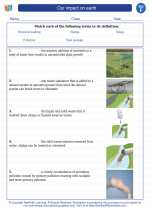Pond: An Overview
A pond is a small, shallow body of still water, typically found in a natural setting such as a forest or meadow. Ponds are distinct from lakes in that they have a smaller surface area and are generally shallower. Ponds are important ecosystems that support a wide variety of plant and animal life.
Formation of Ponds
Ponds can form through various natural processes, such as the accumulation of rainwater in a depression, the melting of glaciers, or the damming of streams by beavers. Human-made ponds, known as farm ponds or garden ponds, are also common and may serve agricultural, recreational, or aesthetic purposes.
Ecological Importance
Ponds support a diverse array of flora and fauna, including aquatic plants, insects, amphibians, fish, and birds. They play a crucial role in maintaining biodiversity and providing habitats for various species.
Study Guide
- What is a pond?
- How do ponds form?
- Why are ponds ecologically important?
- What are some examples of plant and animal life found in ponds?
- What are the differences between ponds and lakes?
[Pond] Related Worksheets and Study Guides:
.◂Science Worksheets and Study Guides Sixth Grade. Our impact on earth
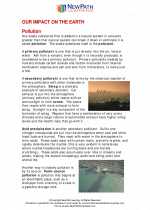
 Worksheet/Answer key
Worksheet/Answer key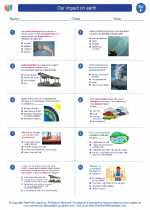
 Worksheet/Answer key
Worksheet/Answer key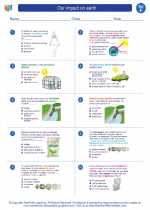
 Worksheet/Answer key
Worksheet/Answer key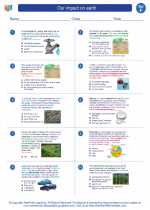
 Vocabulary/Answer key
Vocabulary/Answer key